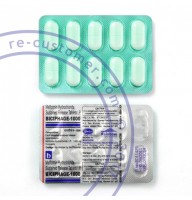Managing the side effects of metformin, a medication commonly used to treat type 2 diabetes, involves several strategies that can help alleviate discomfort and improve tolerance to the medication. Here are some approaches to counteract common side effects of metformin:
Gastrointestinal Upset (Nausea, Diarrhea, Stomach Pain):
- Take metformin with meals to reduce gastrointestinal irritation. Starting with a lower dose and gradually increasing it can also help.
- Avoid high-fat meals, as they can worsen gastrointestinal symptoms.
- Stay hydrated and drink plenty of water throughout the day.
Vitamin B12 Deficiency:
- Discuss with your healthcare provider about monitoring your vitamin B12 levels periodically.
- Consider taking a vitamin B12 supplement if your levels are low or if you are at higher risk due to long-term metformin use.
Lactic Acidosis (Rare but Serious):
- Follow your healthcare provider's instructions carefully regarding the dosage and duration of metformin treatment.
- Inform any healthcare providers treating you that you are taking metformin, especially if you need medical procedures involving contrast dye or if you have conditions that could predispose you to lactic acidosis (e.g., kidney disease).
Metallic Taste or Loss of Appetite:
- These side effects are less common but can occur. Maintaining good oral hygiene and using sugar-free gum or candies may help alleviate a metallic taste.
Hypoglycemia (Low Blood Sugar):
- Metformin does not typically cause hypoglycemia by itself but can enhance the effect of other diabetes medications that lower blood sugar. Monitor your blood sugar levels regularly and be aware of symptoms of low blood sugar.
Kidney Function Monitoring:
- Your healthcare provider may periodically monitor your kidney function while you are taking metformin, especially if you have pre-existing kidney conditions or if you are elderly.
Discussing Alternatives or Adjustments:
- If side effects persist or are bothersome, talk to your healthcare provider. They may adjust your dosage, recommend a different formulation (e.g., extended-release), or explore alternative medications.
It's crucial to communicate openly with your healthcare provider about any side effects you experience while taking metformin. They can provide personalized guidance, monitor your health, and make adjustments to ensure the medication is both effective and well-tolerated.

